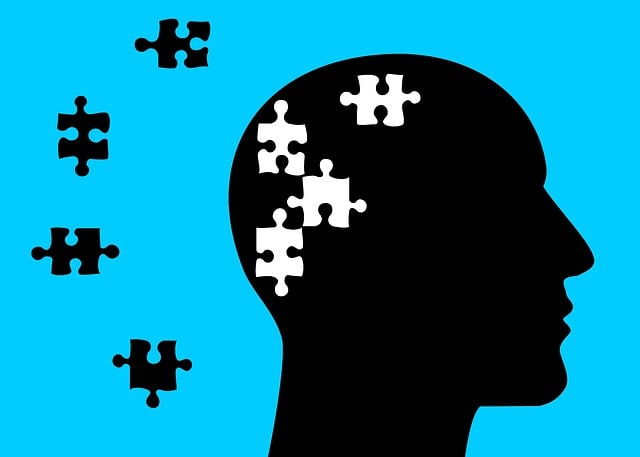In crisis situations, therapy for adults, especially using hypnosis, offers timely intervention to stabilize individuals, prevent escalation, and initiate recovery. Combining public awareness campaigns, mental health education, and community outreach creates a supportive society that prioritizes crisis support. Hypnosis provides deep relaxation, enhanced focus, and access to the subconscious mind, enabling clients to gain insights, develop coping strategies, and improve self-esteem. Effective communication techniques, including active listening and open dialogue, build safety while hypnosis facilitates more productive conversations for better emotional well-being. Post-crisis support through mindfulness meditation and journaling enhances long-term healing, with therapy for adults and hypnosis playing crucial roles in mental health education programs for improved resilience.
“In moments of crisis, effective intervention can be a lifeline. This article offers comprehensive guidance on crisis intervention strategies, focusing on techniques that empower professionals and individuals alike. We explore the critical role of therapy for adults in mitigating crises and delve into the profound benefits of hypnosis as a powerful tool.
From communication strategies to post-crisis support, this guide covers essential practices for fostering resilience and long-term healing. Unlock insights into harnessing therapy for adults and hypnosis, proven methods that navigate individuals through their most challenging times.”
- Understanding Crisis Intervention: When and Why It's Crucial
- The Role of Therapy for Adults in Mitigating Crises
- Hypnosis as a Powerful Tool: Techniques and Benefits
- Implementing Effective Communication Strategies During Interventions
- Post-Crisis Support: Fostering Resilience and Long-Term Healing
Understanding Crisis Intervention: When and Why It's Crucial

In moments of crisis—be it a personal trauma, intense stress, or severe mental health issues—timely intervention can make all the difference. Crisis intervention strategies are designed to provide immediate and short-term support to individuals who are experiencing an acute emotional or psychological crisis. This approach is crucial for adults seeking therapy as it aims to stabilize them, prevent escalation, and facilitate a path towards recovery. Hypnosis, a powerful tool within the realm of therapy for adults, can be employed to help individuals gain insight, manage distressing emotions, and even reduce anxiety symptoms.
Beyond individual interventions, Public Awareness Campaigns Development plays a pivotal role in fostering a supportive environment. Educating the public about mental health, such as through Mental Health Education Programs Design, increases understanding, reduces stigma, and encourages people to seek help during crises. By integrating these initiatives, we can create a more responsive society that prioritizes crisis intervention, ultimately leading to better Self-Esteem Improvement and enhanced mental well-being for all.
The Role of Therapy for Adults in Mitigating Crises

Therapy for adults plays a pivotal role in mitigating crises by providing individuals with effective coping mechanisms and emotional support. Through structured sessions, therapists help clients explore and address underlying issues that may contribute to distressing situations. One powerful tool within therapy is hypnosis, which enables deep relaxation and enhanced focus, allowing individuals to gain new insights into their thoughts and behaviors. This state of heightened receptivity facilitates profound changes in perception and emotional responses, thereby mitigating crisis triggers.
In addition to hypnosis, therapists employ various communication strategies tailored to the unique needs of each client. By fostering open dialogue, active listening, and empathy, therapy sessions create a safe space for individuals to express their feelings and fears. This supportive environment encourages self-reflection and empowers clients with the skills necessary for effective mood management during challenging times. Moreover, community outreach program implementation can complement individual therapy by providing additional resources and support networks, enhancing overall crisis intervention strategies.
Hypnosis as a Powerful Tool: Techniques and Benefits

Hypnosis has emerged as a powerful tool within therapy for adults, offering unique benefits for mental health and personal growth. Through this state of enhanced focus and relaxation, individuals can tap into their subconscious minds to address underlying issues and make positive changes. In the context of crisis intervention, hypnosis techniques provide a safe and supportive environment where clients can gain profound insights and develop effective coping strategies.
One of its key advantages is the ability to foster self-care routine development for better mental health. Hypnotherapy allows individuals to identify and overcome barriers that hinder healthy habits, promoting self-awareness exercises that strengthen their resilience. Additionally, communication strategies are enhanced during hypnosis sessions, enabling clients to express their emotions and thoughts more effectively, further supporting their recovery journey.
Implementing Effective Communication Strategies During Interventions

Effective communication is a cornerstone of successful crisis intervention. When navigating highly charged emotional situations, clear and empathetic dialogue can de-escalate tension and foster a sense of safety. In therapy for adults, techniques like active listening, open-ended questions, and reflective listening help clients feel heard and understood. Hypnosis, as an adjunctive tool, can enhance this process by promoting deep relaxation, reducing anxiety, and improving receptivity to suggestions, thereby facilitating more productive conversations.
Integrating self-care routine development for better mental health is crucial during interventions. Encouraging clients to engage in practices that support emotional regulation, such as mindfulness exercises or journaling, can equip them with coping strategies for managing mood swings and stress. This holistic approach, combining effective communication strategies with self-care techniques, empowers individuals to navigate crises more effectively and promotes lasting emotional well-being, including improved mood management and overall emotional regulation.
Post-Crisis Support: Fostering Resilience and Long-Term Healing

Post-crisis support is a vital step in fostering resilience and promoting long-term healing for individuals who have experienced traumatic events. After the initial intervention, it’s crucial to continue providing guidance and resources to help people navigate their emotional recovery journey. Therapy for adults, such as hypnosis, can play a significant role in this process by offering targeted techniques to manage trauma-related symptoms and promote mental well-being.
Hypnosis, as a therapeutic tool, enables individuals to access a state of deep relaxation and heightened focus, making it easier to confront and process traumatic memories. This method helps clients gain a new perspective on past experiences, thereby reducing the impact of negative emotions associated with them. Moreover, incorporating mindfulness meditation into post-crisis support programs can empower individuals with effective mood management skills, enabling them to maintain stability even during challenging times. Mental health education programs designed with these techniques in mind can equip folks with valuable knowledge and practical tools for enhancing their overall mental health and resilience.
In the realm of crisis intervention, a multifaceted approach combining therapy for adults, hypnosis, and robust communication strategies is key. These evidence-based methods empower professionals to effectively navigate complex situations and foster long-term healing. By integrating these techniques, we can enhance resilience and support individuals in overcoming crises, ensuring a brighter and more hopeful future. Hypnosis, in particular, emerges as a powerful tool, offering profound benefits for those seeking recovery. Thus, leveraging therapy for adults alongside hypnosis enables us to create transformative experiences that reverberate far beyond the immediate intervention.














